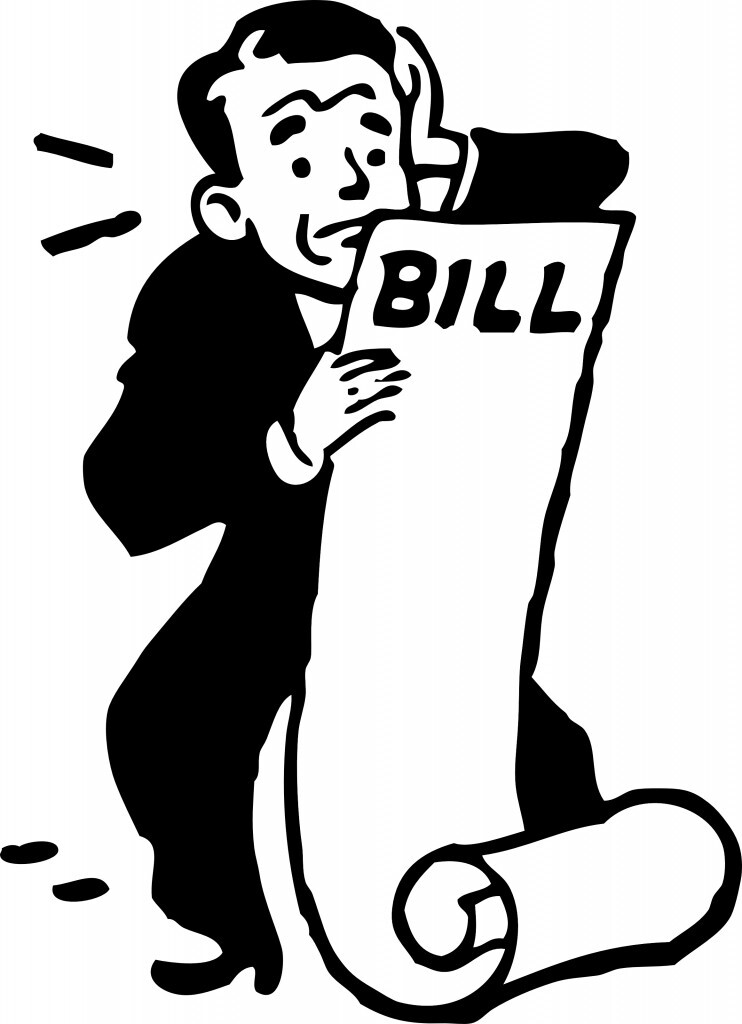Gouged

I just received a medical bill for $35,000. This was for my second ACL reconstruction surgery of the year. I am insured and had already more than met my maximum out-of-pocket expenses for the year, so this procedure should have cost $0. Yet here’s my bill for $35,000. This brings up so many questions such as ‘who botched the paperwork?’ and ‘what about this procedure actually costs as much as a (higher than basic package) brand new car?’ A vague, incomplete itemized bill reveals that the surgical procedure itself cost roughly $5200. However, the human connective tissue used (ie, a meager slice of cadaveric tibialis anterior ligament, used to fortify my puny-calibered hamstring autograft diameter from 6mm to 9mm) cost $13,500. The bioprosthetic anchor/screw used to fasten the graft in place was another $4900. “Medical/surgical supplies” were another $4500. Even injected single doses of Cefazolin, Ropivacaine, Fentanyl, Dexamethasone and Midazolam were $60, $52, $20, $15 and $13 each, respectively.
It echoes my astonishment from four years prior at the itemized bill from my son’s delivery, during which I arrived to the hospital nine centimeters dilated, declined an IV and all medications, delivered a healthy term baby 90min later in the presence of a nurse and midwife, with no complications, took Ibuprofen and Tylenol for pain control the next day as my newborn roomed in with me (not the nursery), and asked for (and was granted) hospital discharge a day early. Doing in the hospital what I could have technically done in my own living room (which isn’t to say I ever willingly would have) apparently costs $12,000 and included such items as extra-strength Tylenol tablets valued at $12 each.
We are all by now well aware the United States is famous for its overspending on health care. Our system is one of the only in the developed world that is based on a private, for-profit motive.
The underlying motive to make money has a ripple effect that increases prices, … For example, insurance companies spend an “enormous amount of money on utilization review,” the process that determines whether a medical service is covered under a given plan, adding that the goal is “to not pay consumers for the care they thought they were insured for.” (https://www.today.com/tmrw/why-healthcare-so-expensive-united-states-t192119)
Other factors crucial to why our health care is so expensive is the merging of large private insurance companies, and consolidation of hospital systems/physician groups which leads to a lack of competition, making it difficult or impossible to drive prices down. The fee-for-service model is another one, encouraging us to perform more procedures, and order more tests and imaging instead of opting for conservative care which in many if not most cases is highly likely to culminate in the same endpoint.
After an interminable length of time spent making multiple phone calls to find out why I was charged $35,000, I discovered that I had failed to check mark and sign a slip of paper sent to me two months prior. I had failed to place a check mark indicating that my surgery was performed as the result of a sports injury, and not work-related nor the subject of a lawsuit. I had essentially failed to tell my insurance company I wasn’t getting this surgery paid for by somebody else. Therefore, instead of contacting me to ask this question, they went ahead and charged me the amount in full. When I requested a new form I was told it could not be emailed or faxed, but had to be snail-mailed, and that this would take roughly two weeks. After filling it out and returning it, I would then need to wait another 40-50 business days until the claim was reprocessed. In the meantime I also discovered that the billing department of the hospital where my surgery was performed would send me three monthly bills before routing the charge to collections. I had already received two. They told me they were unable to note down on my chart that there was a claim pending that would pay the charge in full, however directed me to call again when I received the third bill, so that I could be granted a one-time, 30-day grace period. I was also advised to “check in” by phone every couple of weeks to monitor the status. Because I already don’t waste enough time of my precious life sitting on hold for completely inane reasons.
There are entire departments, full time employees receiving full time salaries dedicated to this labyrinthine (and dare I say, unnecessary?) bureaucracy. The US spends at least double per capita on health care of all other developed countries in the world. My experience is but a microcosm in the health care dystopia that is our system; this is happening thousands (millions?) of times every day, in slightly different permutations. The very idea of it makes my eyes roll back with boredom.
I’m starting to sound like a cheerleader for the DPC model. Yeah, I’m coming around. It makes a surprising amount of sense in this nonsensical world.
- https://www.nytimes.com/2019/12/27/upshot/expensive-health-care-world-comparison.html









Good post. This is all so removed from real costs that no honest person can defend it.
Despite all the happy rah-rah from too much of the medical community, the stranglehold of Big Insurance on health care demonstrates how very little society trusts physicians, who are participating in their own destruction. Nor will moving to single-payer improve things, it will only create a larger layer of criminal penalties for increasingly besieged doctors.
All the more reason to retire from primary care if one can. I suspect the politicians (ie. democraps) will get there and move in the direction of single payer nonetheless. In spite of what the prior author said about primary care, don’t go into it and get out of it as fast as one can. DPC in the right place could work but chose the wrong geographic area and end up bankrupt.